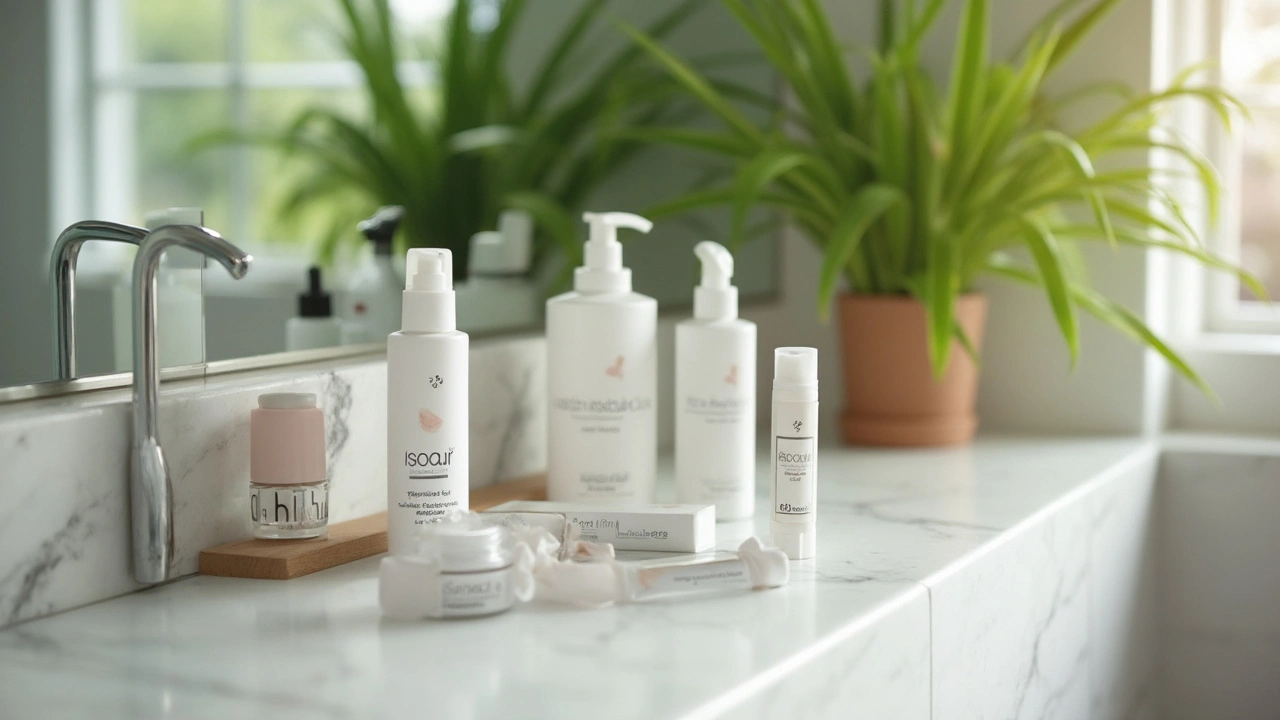Acne solutions: clear choices for breakouts
Sick of breakouts that just won’t quit? Acne starts for different reasons — oil, clogged pores, bacteria, hormones — so the solution depends on the cause. Below you’ll find practical, real-world options: easy over-the-counter treatments, prescription choices, and simple habits that actually help. Use this to map your next steps and know when to see a professional.
Quick at-home fixes
Start with gentle daily care. Use a non-foaming cleanser, apply a thin layer of benzoyl peroxide or salicylic acid once a day, and use a lightweight, non-comedogenic moisturizer. Spot treat with benzoyl peroxide for whiteheads and salicylic acid for blackheads. Avoid scrubs and harsh soaps — they make inflammation worse.
Prescription options & what to watch for
If over-the-counter products don’t help, talk to your doctor. Common prescriptions include topical retinoids like tretinoin, topical antibiotics, oral antibiotics such as doxycycline, and hormonal therapy like birth control pills or spironolactone for women. For severe nodular acne, oral isotretinoin can clear skin but needs strict monitoring for liver effects and birth defects. Ask about side effects and blood tests before starting powerful drugs.
Topical retinoids help prevent clogged pores and work over weeks. Expect initial irritation for many people — redness and flaking — that usually eases. Use sunscreen daily; retinoids increase sun sensitivity. If your skin is dry, use them every other night at first and build tolerance.
Antibiotics lower bacteria and calm inflammation but they aren’t a long-term fix alone. Doctors often combine antibiotics with topical treatments to prevent resistance. If antibiotics are needed, follow the full course and check labs if your provider recommends them.
Hormonal options work well when acne links to menstrual cycles or adult breakouts. Birth control pills that contain estrogen plus progestin can reduce oil. Spironolactone blocks androgen effects and helps many women — it needs regular blood pressure and electrolyte checks.
Natural or overhyped? Some supplements like zinc and certain probiotics show modest benefits in small studies. Tea tree oil can help mild inflamed spots but can irritate if too strong. Avoid miracle claims and check products for comedogenic oils that can worsen acne.
Daily habits matter. Sleep more, manage stress, avoid touching your face, and wash pillowcases every week. Heavy makeup and oily sunscreens can clog pores; choose non-comedogenic labels. Keep hair off the face and rinse sweat after workouts.
When to see a dermatologist? If acne leaves painful nodules, scars, or doesn’t improve after consistent OTC and prescription trials, get a specialist. Dermatologists can offer procedures like chemical peels, laser, or cortisone injections that speed healing and reduce scarring risk.
A final tip: track what works. Take photos every two weeks, note products and side effects, and stick with a routine for at least eight to twelve weeks before judging. Acne doesn’t clear overnight, but steady, targeted care often makes the difference.
Want deeper help? Read our ‘Top 10 Alternatives to Isotroin’ article for non-isotretinoin options and our guides on safe online pharmacies to find affordable meds and verified suppliers. Always check with your prescriber before changing treatment or supplements.
Top 6 Alternatives to Isofair in 2025 You Need to Know
Discover the top six alternatives to Isofair, a popular acne treatment in 2025. This article provides detailed insights into different solutions, exploring their benefits and drawbacks. Learn about Benzoyl Peroxide and other options that might better suit your skin type and condition. Whether you're seeking an over-the-counter product or a more natural approach, find a treatment that fits your acne-fighting needs.
